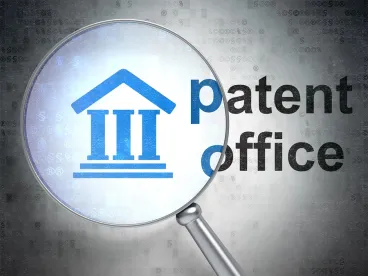On Tuesday, May 26, the United States Patent and Trademark Office (“USPTO”) issued a notice of proposed rulemaking outlining changes to the rules of patent practice for inter partes review (“IPR”), post-grant review (“PGR”), and covered business method (“CBM”) proceedings before the Patent Trial and Appeal Board (“PTAB”). Many of the proposals merely conform the rules to current standard practices for institution of proceedings and filing of sur-replies. The most significant amendment would eliminate a presumption in favor of the petitioner that is currently used when deciding whether to institute a proceeding. Three of the key changes are discussed here.
First, in accordance with the Supreme Court’s decision in SAS Institute Inc. v. Iancu,[1] (“SAS”), the USPTO proposes amending 37 CFR §§ 42.108(a),(b) and 42.208(a),(b) to provide for the PTAB to institute an IPR, PGR, or CBM on all of the challenged claims and on all of the asserted grounds of unpatentability, or deny (i.e., not institute) the petition. Prior to SAS, the PTAB exercised its discretion to institute an IPR, PGR, or CBM on only those claims and grounds for which it determined the petitioner showed a likelihood of prevailing. The proposed rule is consistent with standard practices reflected in the Trial Practice Guide and therefore should not alter practitioners’ current understanding of 35 U.S.C. §§ 314 and 324 regarding institution of a trial.
Second, the USPTO proposes amending 37 CFR §§ 42.23, 42.24, 42.120, and 42.220 to conform to standard practices that flow from SAS, as reflected in the Trial Practice Guide. These changes would permit patent owners and petitioners to (1) address issues raised by the PTAB in the institution decision in their respective responses and replies, and (2) file sur-replies (limited to 5,600 words) to principal briefs. With respect to (2), this means that patent owners may file a sur-reply to a petitioner’s reply to a patent owner’s response or that petitioners may file a sur-reply to a patent owner’s reply to a petitioner’s opposition to a patent owner’s motion to amend. As a reminder, a sur-reply may only respond to arguments raised in the corresponding reply.
Finally, the USPTO proposes amending 37 CFR §§ 42.108(c) and 42.208(c) to eliminate the presumption in favor of the petitioner with respect to genuine issues of material fact submitted with a patent owner’s preliminary response when deciding whether to institute a proceeding. Under current practice, if a patent owner’s preliminary response includes testimonial evidence (e.g. an expert declaration) that creates a genuine issue of material fact, the PTAB views such evidence in the light most favorable to the petitioner for purposes of determining whether to institute a trial. Under the proposed rule, “[t]he Board’s decision [whether to institute a trial] will take into account a patent owner preliminary response where such a response is filed, including any testimonial evidence.” The PTAB would therefore consider all evidence of record at the institution phase—consistent with the statutory framework of 35 U.S.C. § 314(a).
According to the notice, the USPTO understands that some patent owners felt discouraged from filing testimonial evidence with a preliminary response, believing that such evidence would not be given any weight at the time of institution. This understanding is based on feedback received in the Precedential Opinion Panel (“POP”) review of Hulu, LLC v. Sound View Innovations, LLC.[2] If adopted, the proposed rule change would reverse this thinking—encouraging patent owners to submit testimonial evidence with a preliminary response in order to build a complete evidentiary record on which the PTAB may base its decision whether to institute trial. Likewise, petitioners accustomed to relying on the presumption in favor of the petitioner with respect to genuine issues of material fact may want to submit additional or more comprehensive testimonial evidence, including evidence relating to whether a document is a printed publication.
The public may submit comments on the proposed rulemaking to PTABNPRM2020@uspto.gov on or before June 26, 2020.
[1] 584 U.S. ___, 138 S. Ct. 1348 (2018), available at https://www.supremecourt.gov/opinions/17pdf/16-969_f2qg.pdf.
[2] Case IPR2018-01039, Paper 15 (PTAB April 3, 2019).




 />i
/>i

